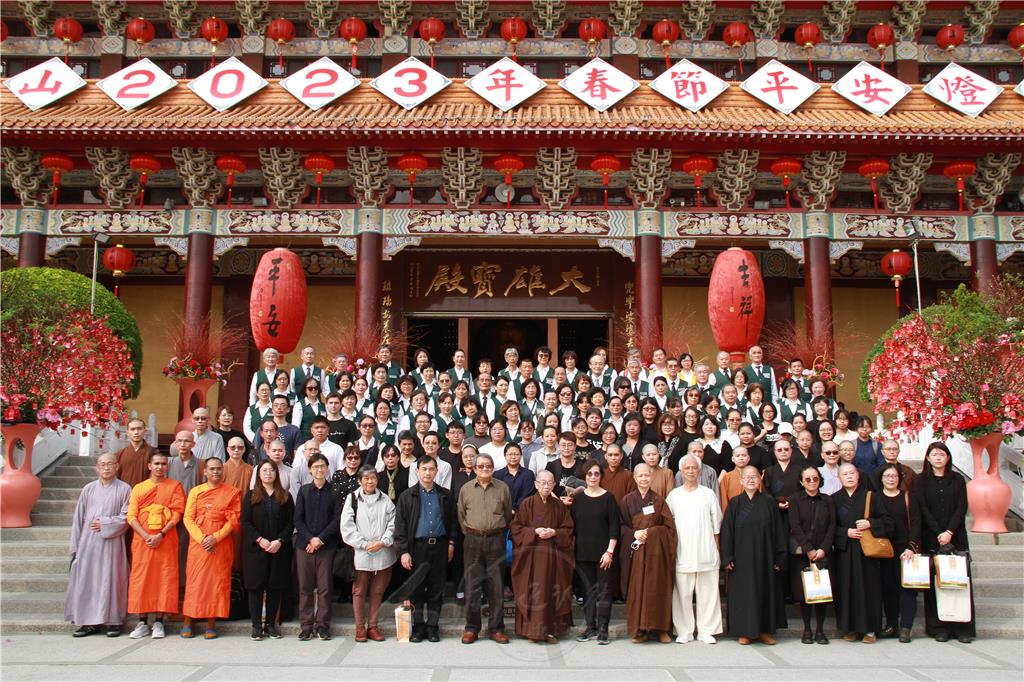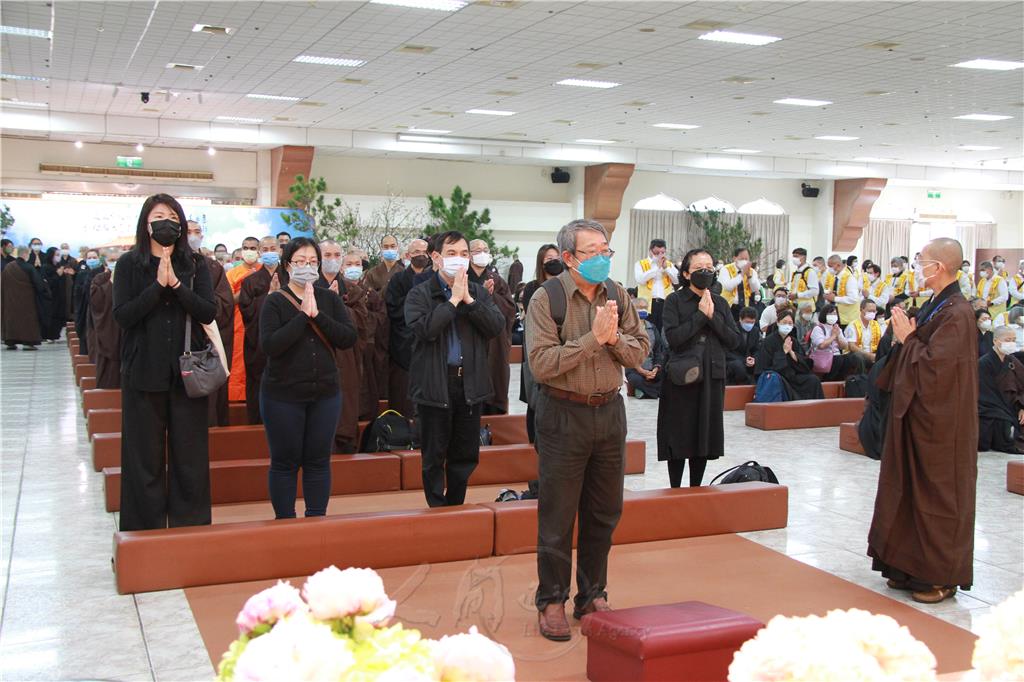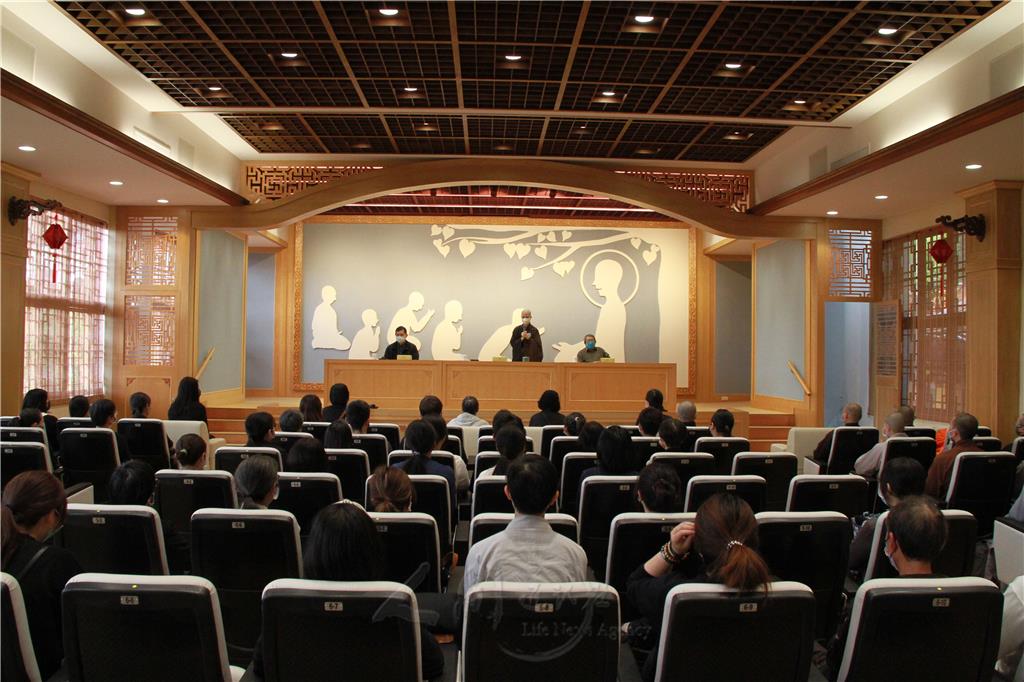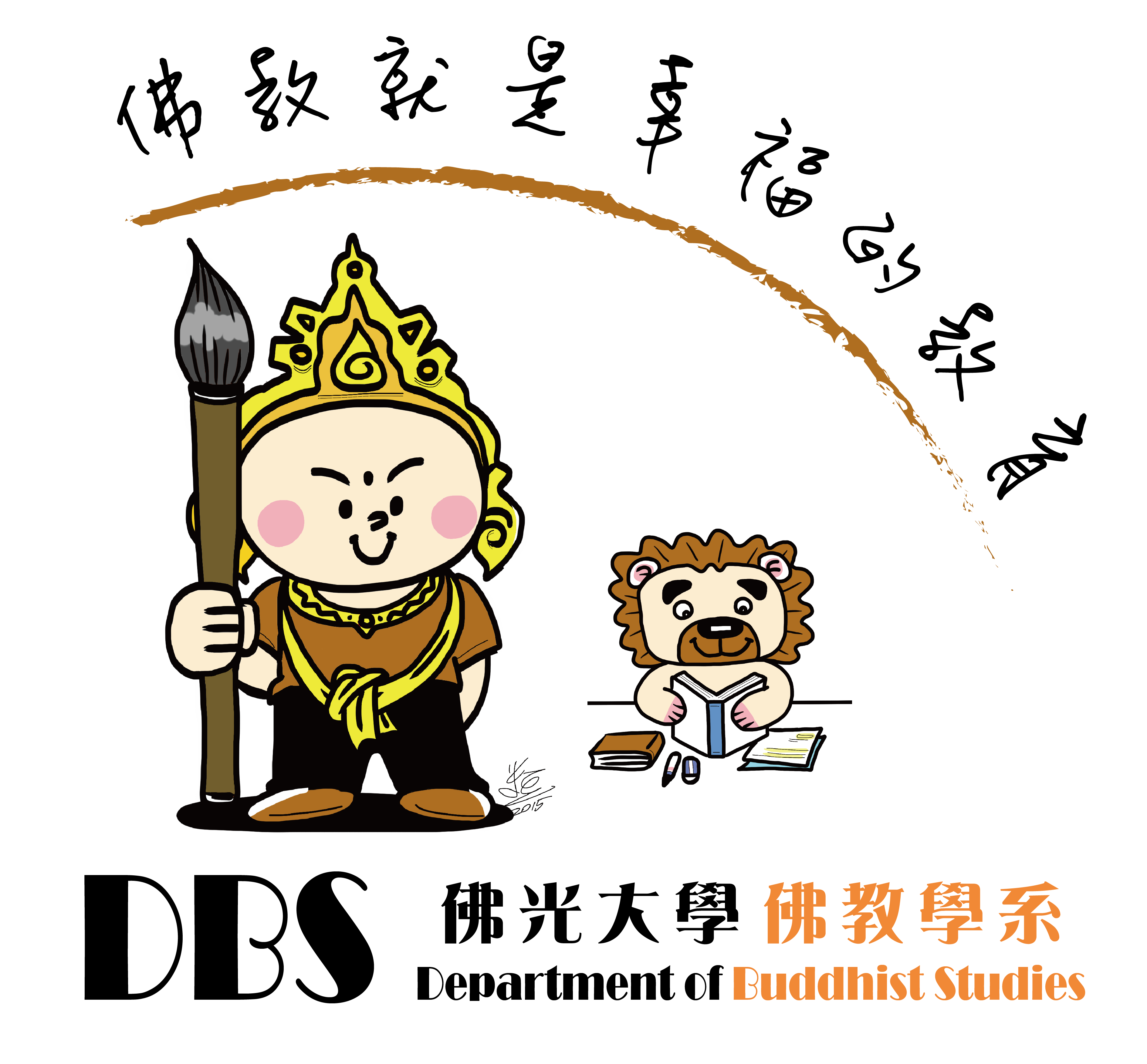Ven. Tzu Hui’s talk
Ven. Tzu Hui’s talk to DBS members in Commemoration of Ven. Master Hsing Yun
Transcribed and translated by W.Y. ChengEnglish revision by Lewis Hurd
The founder of Fo Guang Shan and Fo Guang University, Ven. Master Hsing Yun, passed away on 5 Feb. 2023. When Ven. Master was in better health, he used to visit DBS at least once a year to talk with the faculty members and students. Even when his health was failing, he would make a point of asking people to push his wheelchair all the way from the Guang Yun building at the top of the hill of Fo Guang University down to the Yun Shui building where DBS is located. He said, “My favorite place in the world is DBS.” All of us at DBS feel the care and special attention Ven. Master Hsing Yun has shown to DBS.
To pay our respect and appreciation, a total of 86 DBS members including current and former faculty members and students joined the commemoration ceremony in Fo Guang Shan on 8 Feb 2023. With so many visitors at Fo Guang Shan for the commemoration ceremony, bhikkhuni Ven. Tzu Hui was extremely busy. But Ven. Tzu Hui, The Chair of the Fo Guang Shan Education Board, who shares Ven. Master Hsing Yun’s expectations for DBS, took the time to talk to DBS members.

She said,
“Thank you all for coming. Your presence here shows the special bond between Ven. Master and DBS.
Ven. Master Hsing Yun set up a special scholarship called ‘Good Seeds’; it is a scholarship not only for Fo Guang Shan devotees but for any child who needs help.
Ven Master Hsin Yun also organized and promoted the Cloud and Water Mobile Library. [The Cloud and Water Mobile Library travels to remote areas of Taiwan to provide underprivileged children a chance to enjoy variety of books.]
Ven Master Hsing Yun often said, “I have only one task. What is that? Simply being a monk.” He entered sangha at the age of 12 and had no clue why he was in the sangha. Someone asked him, “Do you want to be in the sangha?”, and he said yes. By the time he realized he was in a monastery, it was too late to turn back and he was shocked. However, he thought, “Since I am here, I shall never give up my monastic vow.”
The monastic path is not an easy one. We have to remember that he was penniless and knew no one when he came to Taiwan. He did not even speak the language! Many of his peers disrobed. Despite all this, he persevered.
Today when you see Fo Guang Shan, you must remember one fundamental ideal that all of us treasure: education.
Fo Guang Shan was founded not to create a temple but to provide education.
When we were looking for a way to found a university, many people objected and told Ven. Master that it is too difficult. But Ven. Master persevered.
Ven. Master Hsing Yun believed that only through education can one do well. And just look at the outcome! More than 300 branches worldwide! All of the monastics that we send overseas were educated in our Buddhist college(s). We know that in some countries such as South Africa where the crime rate was high, establishing a Fo Guang Shan branch is particularly difficult, but nobody gave up. They all continued to carry out their Buddhist service.
Ven. Master Hsing Yun always wanted to help. For example, even if someone died in the middle of night and the family asked him for help, he would just go.
That's the point: education. With education, you can do anything. It is because of our emphasis on education that Fo Guang Shan can be like this today.
Ven. Master always stressed the importance of education. In the early days, there was no place to conduct classes and so we had to borrow spaces. But when the Lunar New Year came, Ven. Master would rush back to Fo Guang Shan and straight into working in the kitchen. We sold fried noodles to visitors. All proceeds from the sales went into education. Some devotees would say, “Master, working in kitchen is too hard. You don’t have to do it yourself.” Ven. Master would reply, “Not hard at all. Working for education is never tiring.”
Some might think: ”Can he be a monk forever?” The answer is yes. Ven. Master Hsing Yun vowed to be a monk in all his lives.
Ven. Master had diabetes for 50 years. In the past few years, his hands shook and he was nearly blind. Even in this fragile health, he wanted to read and write. We know his writings exceed 40 million words.
When we were building the Buddha Memorial Museum, Ven. Master was already in a wheelchair, but he still visited the construction site every single day and talked to the construction workers.
What I want to share about Ven. Master’s spirit is that he never gave up.
Although Ven. Master was nearly blind, he still asked others to read to him every day. He may not have seen well, but he still wrote calligraphy every day. No obstacle could stop him from working for Buddhism.
Ven. Master came to Taiwan without any money. Even towards the end, he lived a humble life, with ragged robes and simple meals. There are no material assets under his name. He gave away everything.
I hope DBS will take inspiration from him and follow his example.
In other talks, we learned that Ven. Master Hsing Yun founded DBS in order to provide a place for both monastics and householders to study Buddhism. It is his hope that DBS might grow and become an important place for learning.



 College and Department of Buddhist Studies, FGU
College and Department of Buddhist Studies, FGU